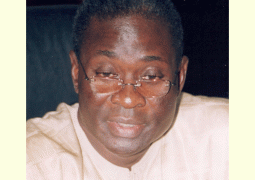(Wednesday 16th October 2019 Issue)
Ministry
of Petroleum and Energy, Tuesday validated the off-grid solar market assessment
report of The Gambia, as part of the preparatory phase of the Regional Off-grid
Electrification Project (ROGEP).
The
project is funded by World Bank and Clean Technology Fund and implemented by
the ECOWAS Center for Renewable Energy and Energy Efficiency (ECREEE) together
with West African Development Bank.
ROGEP
is supporting The Gambia and 18 other countries in West Africa and the Sahel,
to accelerate the development of standalone solar PV systems in off-grid areas
to increase electricity access by stimulating both public and private sector
investments in rural electrification.
The
objective of the study is to access the market for off-grid solar systems and
recommend the most realistic market-based mechanism(s) that will lead to
scaling up access using solar technologies by the private sector.
In
her opening statement on behalf of the Minister of Petroleum and Energy, Rohey
Bittaye-Darboe, Permanent Secretary said energy has long played, and continues
to play a strategic role in the growth and functioning of the world’s economy.
She
described access to electricity as a prerequisite for the establishment of new
businesses and the expansion of existing ones, providing the platform for
employment creation, social development and economic growth.
“The
availability of reliable, affordable, efficient and environmentally friendly
electricity supply is one of the cornerstones of The Gambia Government
development aspirations for the energy sector,” she stated, adding that in
keeping with the global energy transition towards renewable energy systems, the
government is committed to promoting the use of off-grid solutions including
standalone home systems as a necessary vehicle to provide electricity access to
those communities beyond the reach of the grid.
According
to her, as part of their strategy for universal electricity access, The Gambia
government has set a target to connect one-third of the rural population
through off-grid solutions by 2030, which include mini-grids and standalone
home systems, but she was quick to add that this target could not be readily achieved
without establishing the right market conditions, putting in place an effective
quality assurance framework and developing financial support and de-risking
mechanisms for the private sector.
Sire
Abdoul Diallo, ECREEE representative said it is important to understand the
framework conditions to ensure interventions are in line with close existing
conditions and are able to change the course.
He
expressed their readiness to work with The Gambia in ensuring the report
reflects everybody’s views and realities on the ground, adding that they hope
the project will be able to address issues The Gambia faces in terms of
electrification.


